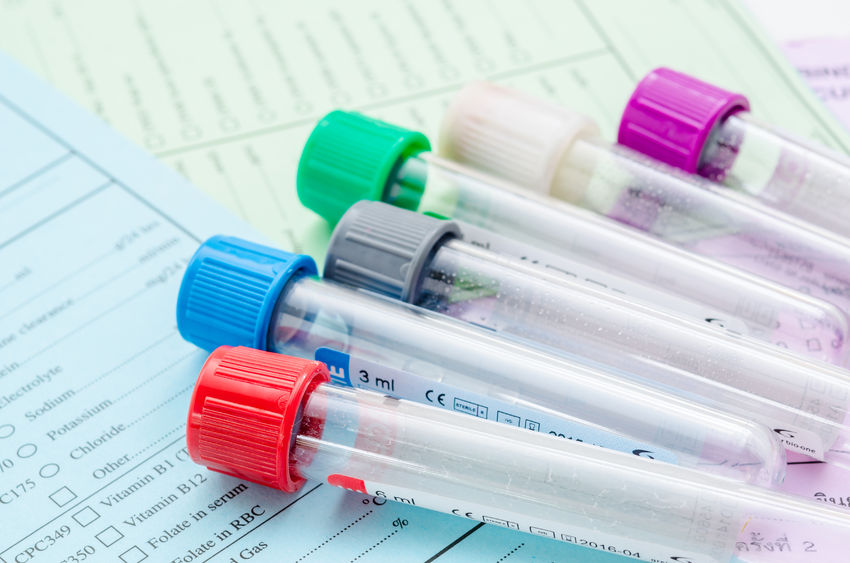
DCT
Also known as Coombs Direct Test BloodWhat is this test?
Coombs Direct Blood test is performed to check for antibodies that could attack and destroy red blood cells from the blood. It detects the antibodies floating in the liquid part of the blood called serum. This test helps to determine whether you have hemolytic anemia or not. It is also used to check for any negative reaction to the body after a blood transfusion.
What is the importance of Coombs Test?
Coombs test is used to detect the presence of certain antibodies in the blood. Antibodies are proteins produced by our immune system to fight against foreign substances such as bacterias and viruses. Sometimes the body makes antibodies that attack its own cells.
Hemolytic anemia is a condition where the red blood cells are destroyed. This occurs when the immune system produces antibodies in the blood that attacks and destroys the red blood cells. The signs and symptoms of hemolytic anemia are a weakness, fatigue, shortness of breath, headache, dizziness, pale skin, cold hands, and feet.
This test is also used to check for any negative reaction to the body after a blood transfusion. After a blood transfusion, your immune system may produce antibodies if it the transfusion don't match yours. These antibodies are generated against foreign red blood cells in case of two different blood types.
This test is performed in women during pregnancy or at delivery to check for any antibodies that could pass to and harm the unborn baby. These antibodies are formed against foreign RBC antigens of the fetus. This can cause hemolytic disease of the fetus and neonate during pregnancy or at delivery. Erythroblastosis fetalis or hemolytic disease of the fetus and neonate is a condition that occurs when the baby’s blood type will be incompatible with the mother’s blood type.
There are two types of Coombs tests namely the direct Coombs test and the indirect Coombs test. 1. Direct Coombs test (DAT): This test detects the antibodies that are attached to the surface of red blood cells. 2. Indirect Coombs test (IAT): This test detects the antibodies floating in the liquid part of the blood called serum.
Why this test is performed?
This test is performed to detect the antibodies floating in the liquid part of the blood called serum. Your doctor may ask to perform this test if you have a family history of hemolytic anemia or if you experience any signs and symptoms of hemolytic anemia such as a weakness, fatigue, shortness of breath, headache, dizziness, pale skin, cold hands, and feet.
This test is recommended in women during pregnancy or at delivery to check for any antibodies that could pass to and harm the unborn baby. You may also be advised to perform this test if you have had a recent blood transfusion and if you are experiencing symptoms of a transfusion reaction.
How often this test is performed?
If you have a family history of hemolytic anemia your doctor may ask to perform this test in a 6 monthly or a yearly basis. If you are diagnosed with hemolytic anemia then you may have to perform this test on a regular basis as instructed by the doctor.
Precautions:
Certain medicines such as cephalosporins, dapsone, nitrofurantoin, levodopa, quinidine, or nonsteroidal anti-inflammatory medicines such as ibuprofen may affect your test results. Inform your healthcare provider about all the medicines that you take.
Also known as DCT Blood, Direct Coombs Test, Coombs Direct Test.
Test Preparation
Inform your doctor if you are on any medications, have any allergies or underlying medical conditions before your DCT. Your doctor will give specific instructions depending on your condition on how to prepare for DCT.
No specific preparation is necessary for this test. However, follow all the instructions given by your healthcare provider.
Understanding your test results
If the test results of a direct Coombs test is positive it may indicate the presence of antibodies on the surface of red blood cells. The conditions that may cause antibodies on the surface of red blood cells are hemolytic anemia, transfusion reaction, Erythroblastosis fetalis, leukemia (blood cancer), or systemic lupus erythematosus (an autoimmune disease). Individuals with certain infections such as syphilis (a sexually transmitted disease) may also give positive results in the test.
If the test results of a direct Coombs test is negative it may indicate that no antibodies are detected on the surface of red blood cells.
Use of certain medicines such as cephalosporins, dapsone, nitrofurantoin, levodopa, quinidine, or nonsteroidal anti-inflammatory medicines such as ibuprofen may also give positive results in the test.
Based on the test results, your doctor may advise appropriate medical treatments or further diagnostic tests.
| Gender | Age groups | Value |
| UNISEX | All age groups | Results are normal if there is no clumping |